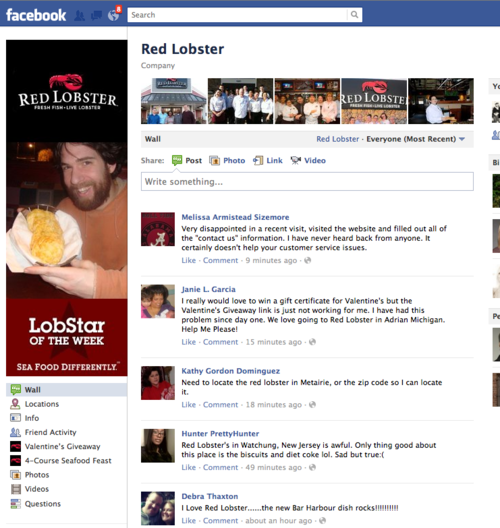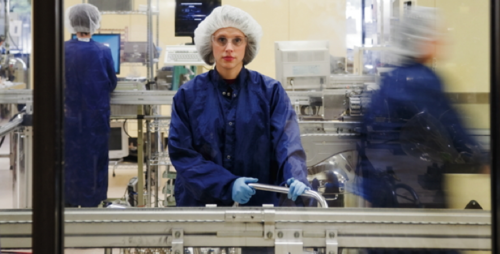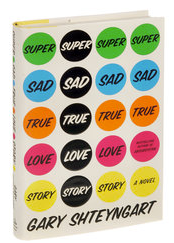#dodgedartregistry is righteous, great idea. props to @wiedenkennedy
 Thursday, January 24, 2013 at 12:36PM
Thursday, January 24, 2013 at 12:36PM 

 Thursday, January 24, 2013 at 12:36PM
Thursday, January 24, 2013 at 12:36PM 

 Thursday, January 24, 2013 at 12:14PM
Thursday, January 24, 2013 at 12:14PM Finished reading Predictably Irrational by @danariely. For me, I'd say it's just a bit above average. There are many examples of what people do, and how to shape behavior, but what's missing for me is the why. There is a some attention to say that most people have fear of losing what they've attained - hence risk aversion. For me - that's not the insight. For me I want to know why people are afraid of losing what they've attained? Why do people fear the unknown, and prefer the devil they know over the devil they don't.
 Don't we want to unlock that answer? the human truth? is risk aversion because people have worked hard to attain where they are/what they have and don't want to give that back? (is it that simple?) or is risk aversion because they're afraid of what happens when they have a new (blank) canvas? that to me is interesting. particularly today because we're so connected. I think this is interesting. I think what it says is that connections still have to begin on a personal level. they can grow from there - really just like ideas. maybe now we're getting somewhere.
Don't we want to unlock that answer? the human truth? is risk aversion because people have worked hard to attain where they are/what they have and don't want to give that back? (is it that simple?) or is risk aversion because they're afraid of what happens when they have a new (blank) canvas? that to me is interesting. particularly today because we're so connected. I think this is interesting. I think what it says is that connections still have to begin on a personal level. they can grow from there - really just like ideas. maybe now we're getting somewhere.
Thanks. God Bless
 Sunday, October 21, 2012 at 11:20PM
Sunday, October 21, 2012 at 11:20PM Where I am today is social media - it is the modern live ingredient of an integrated campaign.

SM contributes to loyalty, and to brand building with content both from the customer and the brand. Today, social media is a stable channel, and a brand needs to be involved in this space. I recall Alex Wippurfurth's book Brand Hijack specifially calling for brands to allow consumers to input into the brand building process, with examples like RedBull. His book certainly preceded the social media explosion - but the idea that people own brands as much as the brands themselves was prescient and 100% accurate.
I don't know which direction social media will take right now, but it's not simply a trend, and continuing top down business comms as usual is just wrong. Social media is real, powerful and has implications for your business. And while we may say or think it's almost come out of nowhere - it hasn't. It's only been amplified through technology. This is the piece that may change - we don't know the how necessarily, but we do know the what - people talk and they talk about your brand.
Think about this - we for years had been in the business of making the brands on which we work buzzworthy, something to be talked about. That was the goal of advertising - we wanted people to talk about our brands. And we know they were - we just didn't the details before the explosion.
Now that they're where we can see them, we need to give the people rights.
What i'm saying is, i'm in support of Wippurfuth's thesis that brands need to formally recognize the consumer's control on their business, on their strategy. Content is and will continue to be uber-important, of course, but the shape of that content really has to include the consumer. It has to be real, authentic, like the Sarah Silverman campaign a few year ago. The results speak for themselves. Like my friend Ben Stiller says, "Do It"
 advertising,
advertising,  social media
social media  Sunday, October 21, 2012 at 11:15PM
Sunday, October 21, 2012 at 11:15PM So, I read The Atlantic article by Adam Davidson about the changing landscape of American manufacturing. Thomas Friedman also commented on the piece.

I thought it was going to be longer, but it was fine. Length aside, I thought it was pretty straightforward, and made sense - about how the US is holding on to skilled labor - ie heavy and/or precise machinery, engineering, etc., but outsourcing unskilled labor - ie apparel, toys, and the like. I didn't see anything in the article that was surprising; it was essentially upholding the rule we've been living with as long as I can remember: education takes you farther.
 There was one area of the article I thought was interesting: Standard's engineers examining parts to identify where they could be produced most (cost) effectively. For me - that connected with what I do - but hadn't thought of in that way. I work in advertising, and up until recently had thought of what I do as creative exercise.
There was one area of the article I thought was interesting: Standard's engineers examining parts to identify where they could be produced most (cost) effectively. For me - that connected with what I do - but hadn't thought of in that way. I work in advertising, and up until recently had thought of what I do as creative exercise.
I just never thought of advertising as a business - probably lucky for me. Until now. That piece of the article really just clarified for me 1) that I do in fact work in a factory, 2) I do produce a specialized product, and 3) that managers upstream determine which direction work flows.
I'm fortunate I have the education to work in this 'factory' and produce the product I do. I'm feeling a little more grown up now...
 jobs,
jobs,  the atlantic
the atlantic  Sunday, October 21, 2012 at 11:12PM
Sunday, October 21, 2012 at 11:12PM  I finished the novel Super Sad True Love Story by Gary Shteyngart. I loved this book. It was just super plain fun to read, which is a major irony running in the book's not-too-distant future setting. The main story, multiple story lines, setting, and characters are more than prescient - they're radically current. The ending is apropot.
I finished the novel Super Sad True Love Story by Gary Shteyngart. I loved this book. It was just super plain fun to read, which is a major irony running in the book's not-too-distant future setting. The main story, multiple story lines, setting, and characters are more than prescient - they're radically current. The ending is apropot.
Thanks to @TedManger for the recommendation.
 books,
books,  shteyngart
shteyngart